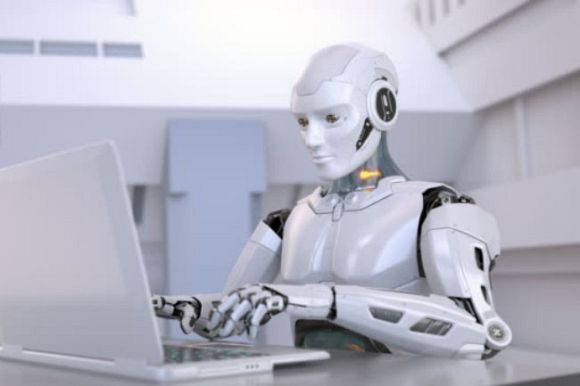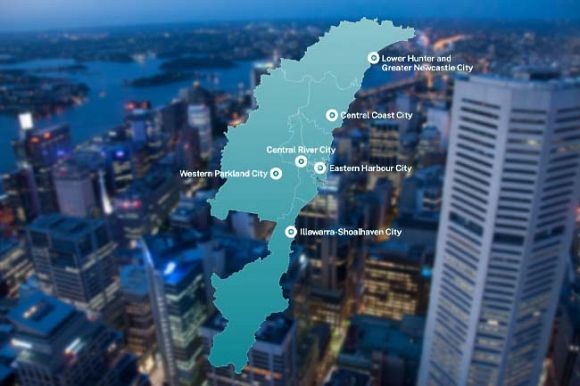Innovation needs to be cultural, economic and social as well as technological to address global issues, so businesses must start producing technology that has a "measurable impact" on the world, writes Paul Budde.
I BELIEVE we have a problem with technical innovation. So, this week we will dig a bit deeper as the problem most likely is not technology.
Recently, I attended an innovation masterclass from Griffith University presented by Professor Ingrid Burkett. She started by asking the question: "Will innovation save today's business leaders?" This question was posed alongside the global challenges we face, such as economic recession, the pandemic, climate change and biodiversity.
In order to address these issues, innovation needs to be not only technological but also cultural, economic and social.
While innovation rates high among top priorities as business leaders see them, it must progress to "impact innovation" — a way of creatively collaborating and producing innovative work that has a "measurable impact" in the real world. For example, our technical (electronic) innovations are currently creating 50 million tonnes of waste every year, of which only 20 per cent gets recycled. That sort of "innovation" is no longer sustainable.
Burkett suggested seven new directions to make innovations matter by way of:
- focusing on better (rather than novelty);
- starting with curiosity (rather than ideas);
- building culture (rather than projects);
- keeping eyes on the horizon (rather than hype);
- collaborating and crossing over (rather than closing doors);
- embracing radical pragmatism (rather than disruption); and
- valuing what matters (rather than just the bottom line).
Impact innovation aims to address these issues. "New" is no longer good enough, we need to add "better" to the definition of innovation.
Impact innovation embraces the intentional design, testing and development and implementation of something better or new that creates value – including financial, social, environmental and/or cultural value – with the purpose of regenerative, distributive growth plus betterment (a better future). Rather than looking at product innovation, we see the product as a service and start looking at innovation in a much more holistic way.
The circular economy is a key element of this new way of thinking about innovation. As with all transformative and reconstructive structural changes that we are facing, they offer significant economic benefits.
True, during the transformation, changes will need to be made from old, no longer constructive practices — people will need to be educated and trained so they can participate and not be left behind. Economic advisory firm KPMG for example estimates that by 2047 the circular economy would be worth $210 billion dollars to Australia and would employ 17,000 people.
Back around 2014/2015, I was involved in preparations for the United Nations' Sustainable Development Goals (SDGs). As a co-initiator of the UN Broadband Commission for Digital Development, our group provided input into the development of these goals.
At that stage many thought these SDGs were an impediment to businesses. This sentiment has changed with more and more companies now looking at them as opportunities to build new sustainable business models.
In my work with smart cities, we also created innovation hackathons for bureaucrats, community leaders and others. There was no specific request for a particular innovation. The get-together started with lots of questions (curiosity, learning) about what the problems are that annoy citizens, customers, users and bureaucrats. What are the right questions? What works and what doesn’t and why not?
The idea is to tap into people’s creativity to work things through by exchanging ideas and opinions and imagining new and better ways forward. Then we look at execution. Where lies the consensus? What sort of actions are needed? How can we enact the types of innovations needed? I was thinking of smart cities as an example of a new way of looking at innovation while listening to the presentation from Professor Burkett.
This work did actually create an organisational culture towards innovation. I have to say this was not an immediate result of the smart city hackathon — leadership must then turn the idea of impact innovation into an organisation-wide culture. Everybody should be involved in that, not just the innovation department.
If this change in culture is not led from the top, then such innovation hackathons will remain token initiatives. Most important is to stop business-as-usual thinking and start the transformation process based on what we do now – in the midterm – and think about where we want to be in three to five years’ time (the horizon).
One of the great things about working with smart cities is that this market segment is much more willing to share ideas and collaborate. It leads to great cross-fertilisation whereby innovation can grow much quicker.
Often businesses are too worried about the competition and have a closed-shop approach, which in modern society is detrimental to innovative growth. But the train has left the station. Forward-looking organisations are already building innovation ecosystems. We have seen many such structures evolve during the pandemic (never waste a good crisis). Climate change is crying out for such a collaborative global approach.
Also, of utmost importance with impact innovation is the fact that all sectors need to collaborate: governments, regulators, universities, businesses and communities. Again, this has to be based on an open culture of all groups involved.
This equally applies within organisations. One of the most frustrating issues I continuously come across is silo-based organisation structures and silo-based thinking of the individuals involved (protecting ivory towers). This is even more frustrating, as technology can operate across silos and market segments and as such, can greatly support impact innovation.
The other thing I have learned is the benefit of standing on the shoulders of giants — you don’t have to reinvent the world, but you can build on what others have innovated before you. Most innovations aren't totally new, most of them are incremental steps forwards.
Another way of innovating is looking at the issue from a different angle – not following a linear line of thinking – and stopping doing things the traditional way. That might be an innovation in itself! If we look at the smart phone, we see that its innovation started 40 years ago with what we now call "mobile bricks".
The way forward is, in my opinion, nothing less than impact innovation. It needs to be based on creating value around things that matter. This will create a real impact on society, the economy, ecology and the well-being and lifestyle of all.
So, here is my answer to the fundamental question: Will innovation save today's business leaders? In my opinion, we have a great opportunity to find solutions for the massive challenges we face. But are we willing to change our current society, economy and policies in order to move in that direction?
As an optimist I will say, at least, yes we can. Consumers are looking for brands that have a positive impact; employees are looking for jobs that give them an opportunity to make a difference; investors are looking for companies that will make a positive impact on society as a whole and voters (particularly younger people) are looking for politicians that support sustainability.
Paul Budde is an Independent Australia columnist and managing director of Paul Budde Consulting, an independent telecommunications research and consultancy organisation. You can follow Paul on Twitter @PaulBudde.
 This work is licensed under a Creative Commons Attribution-NonCommercial-NoDerivs 3.0 Australia License
This work is licensed under a Creative Commons Attribution-NonCommercial-NoDerivs 3.0 Australia License
Support independent journalism Subscribe to IA.















